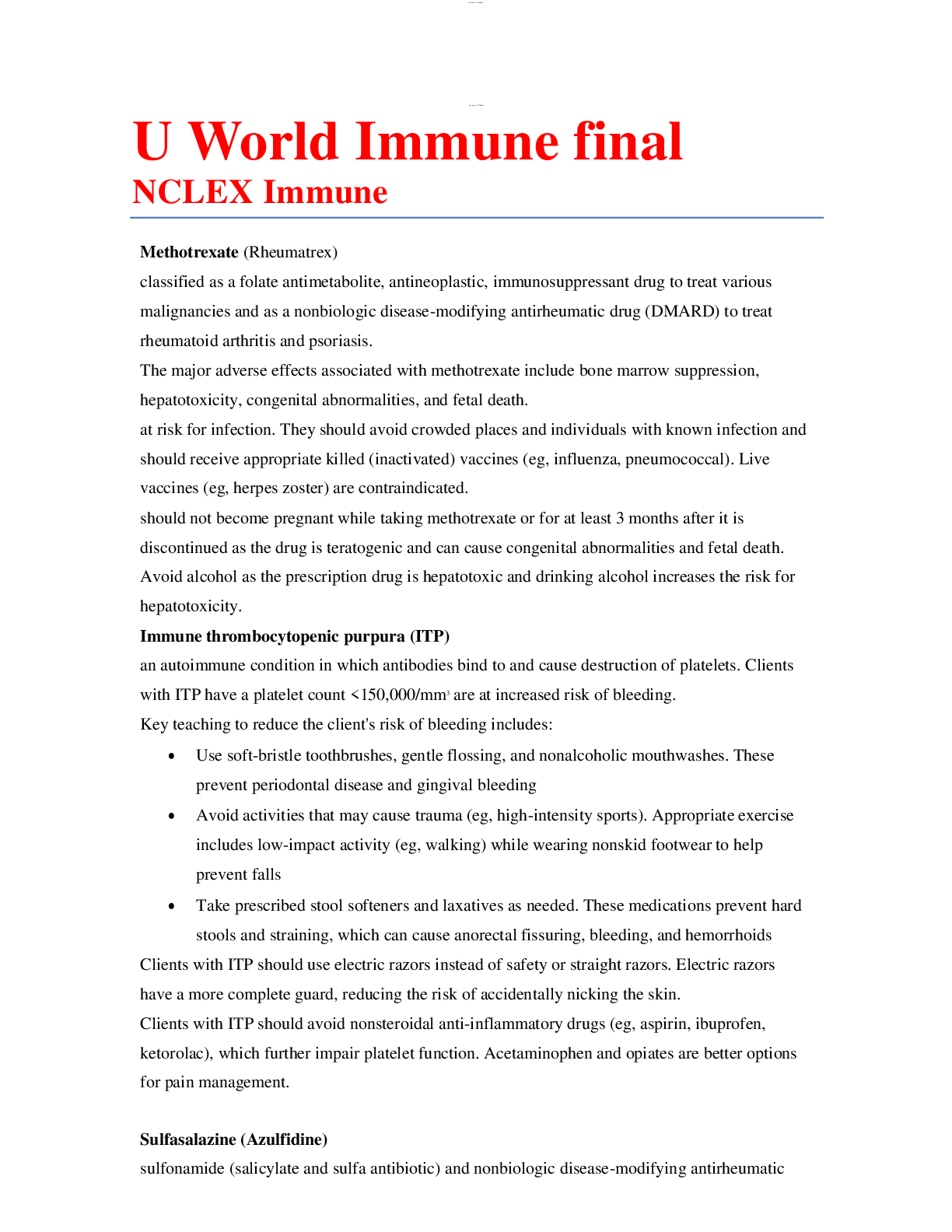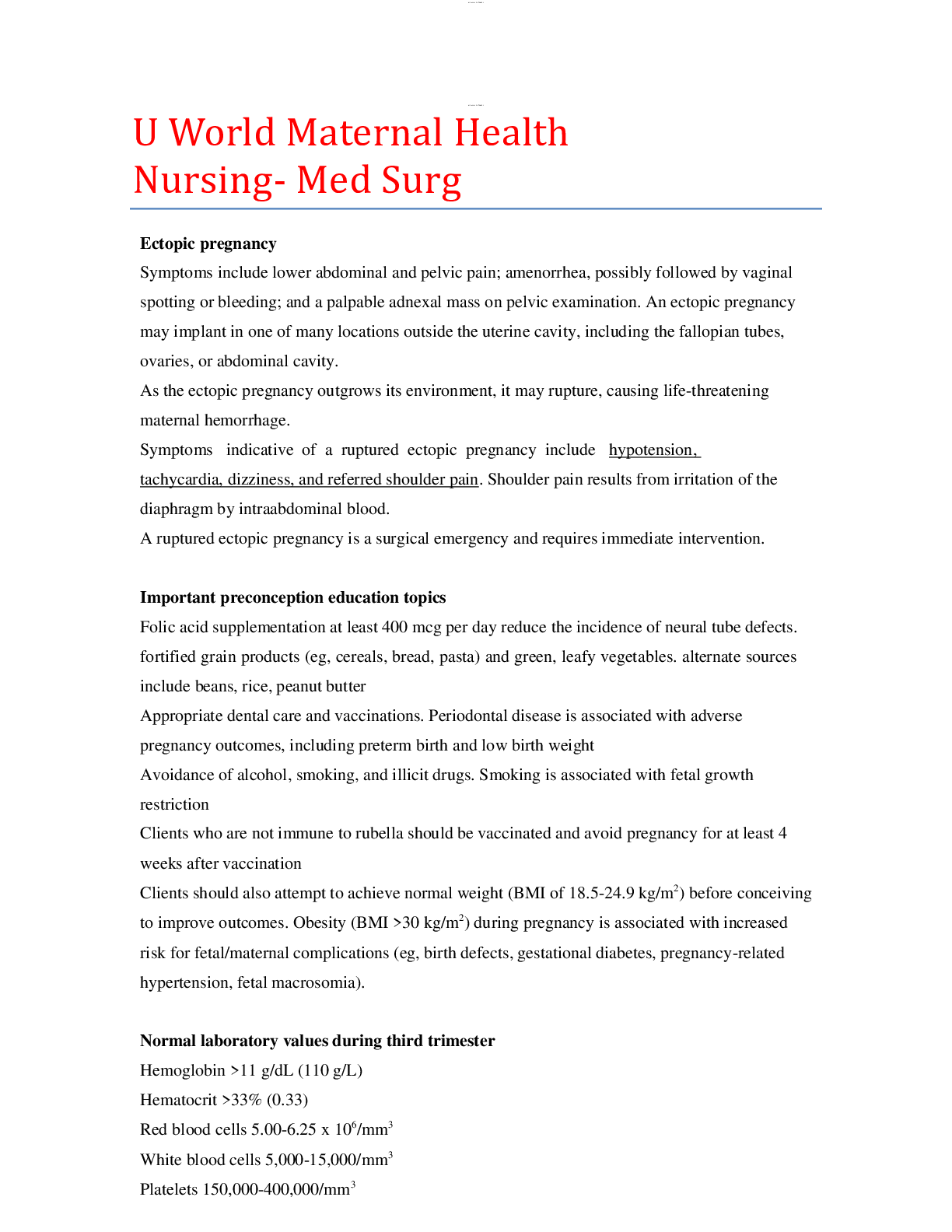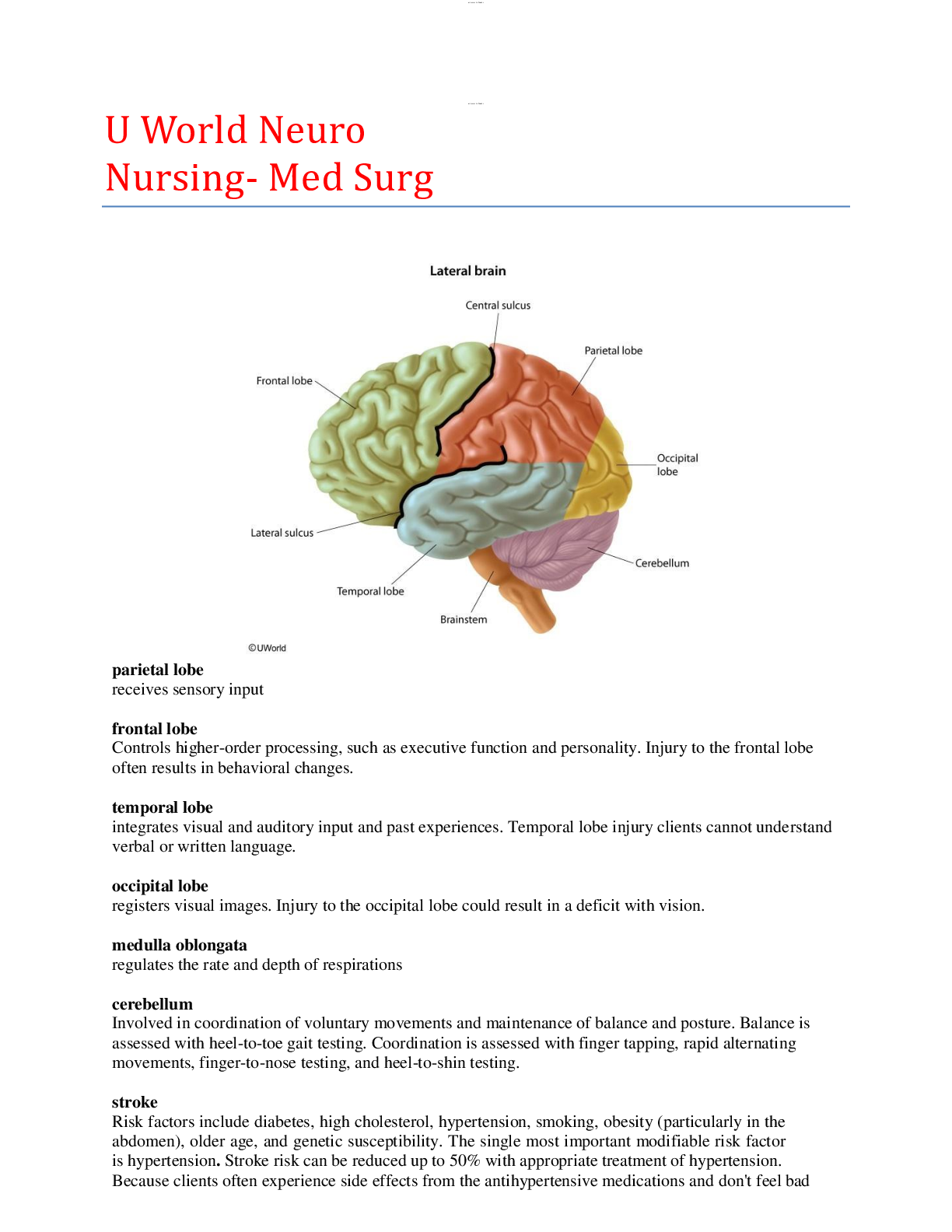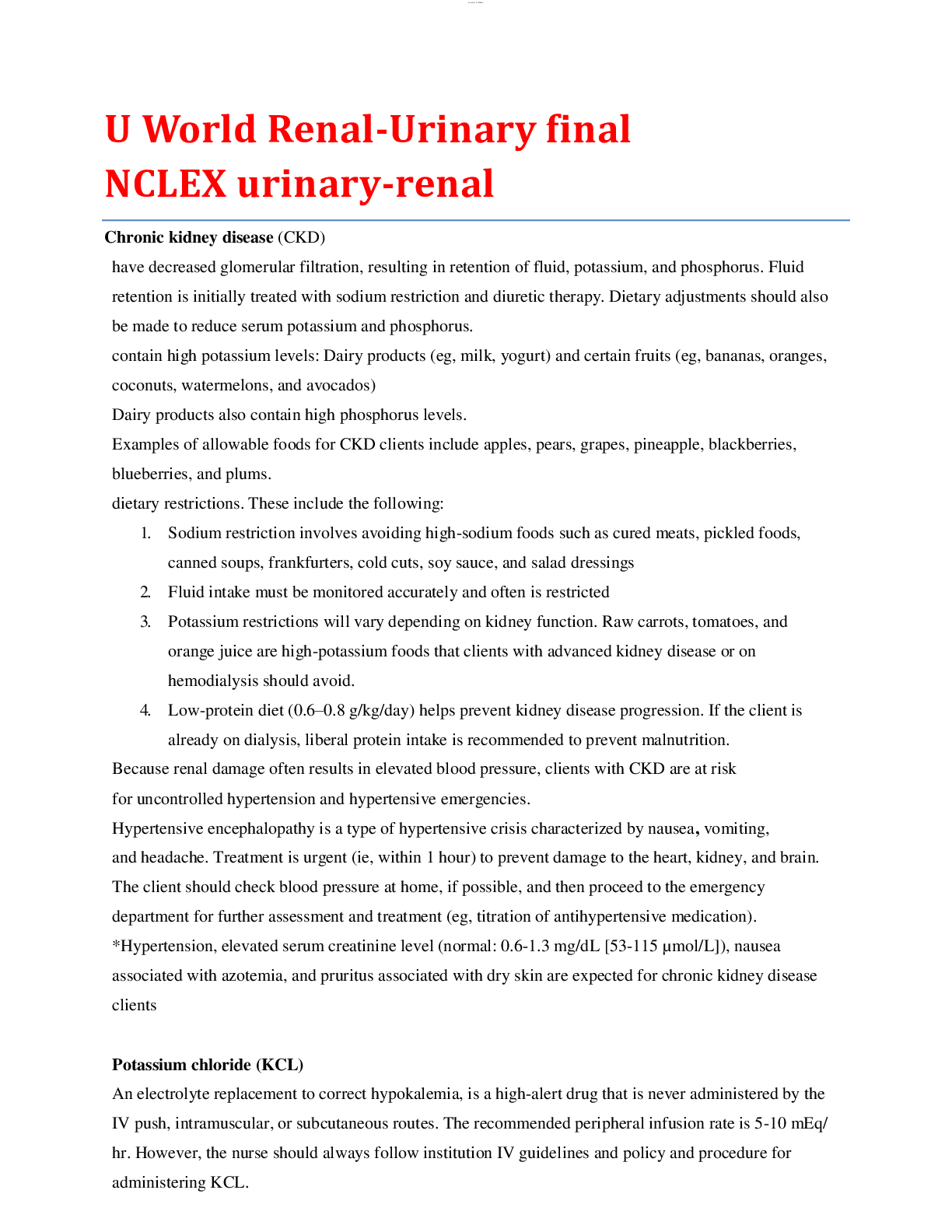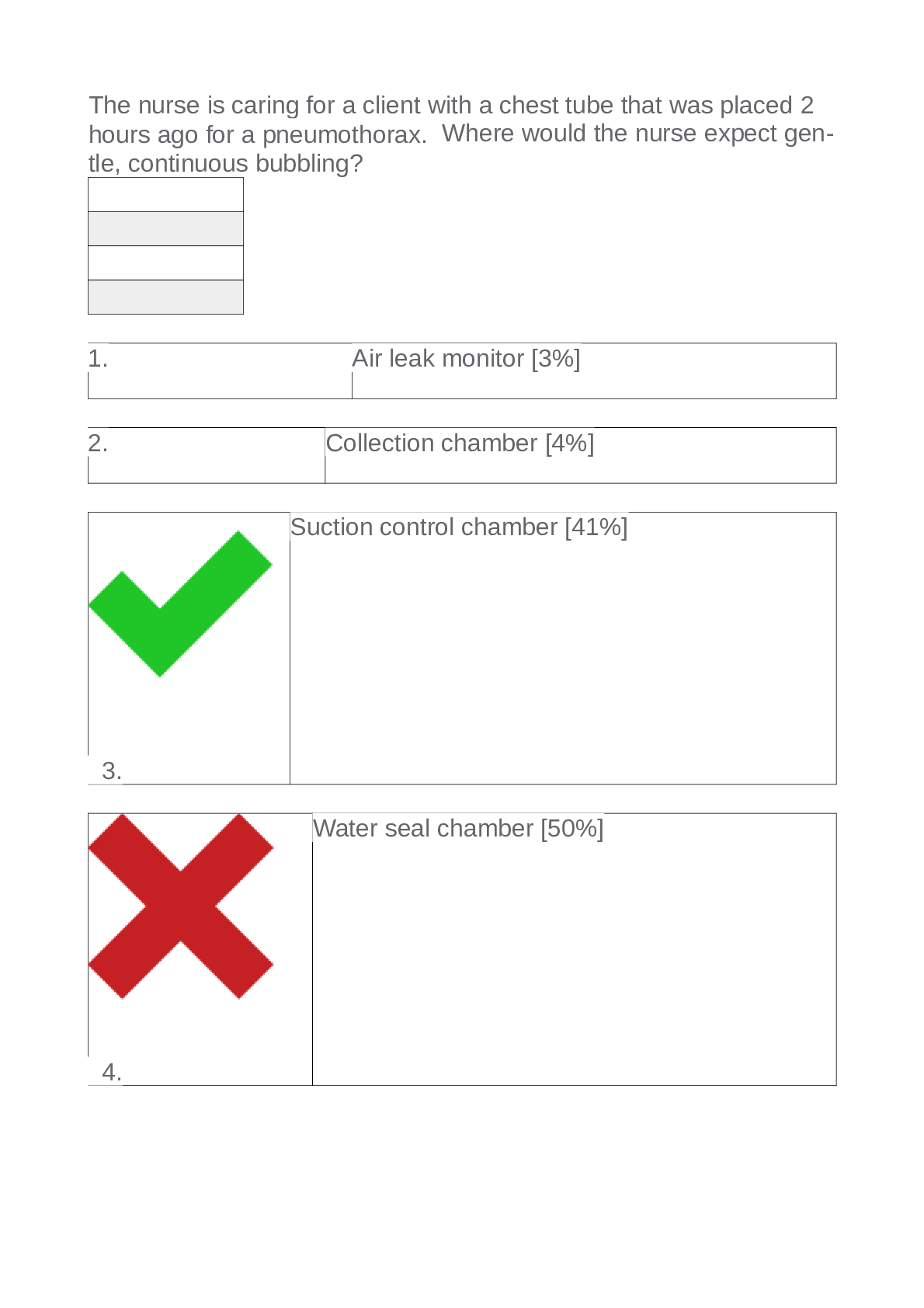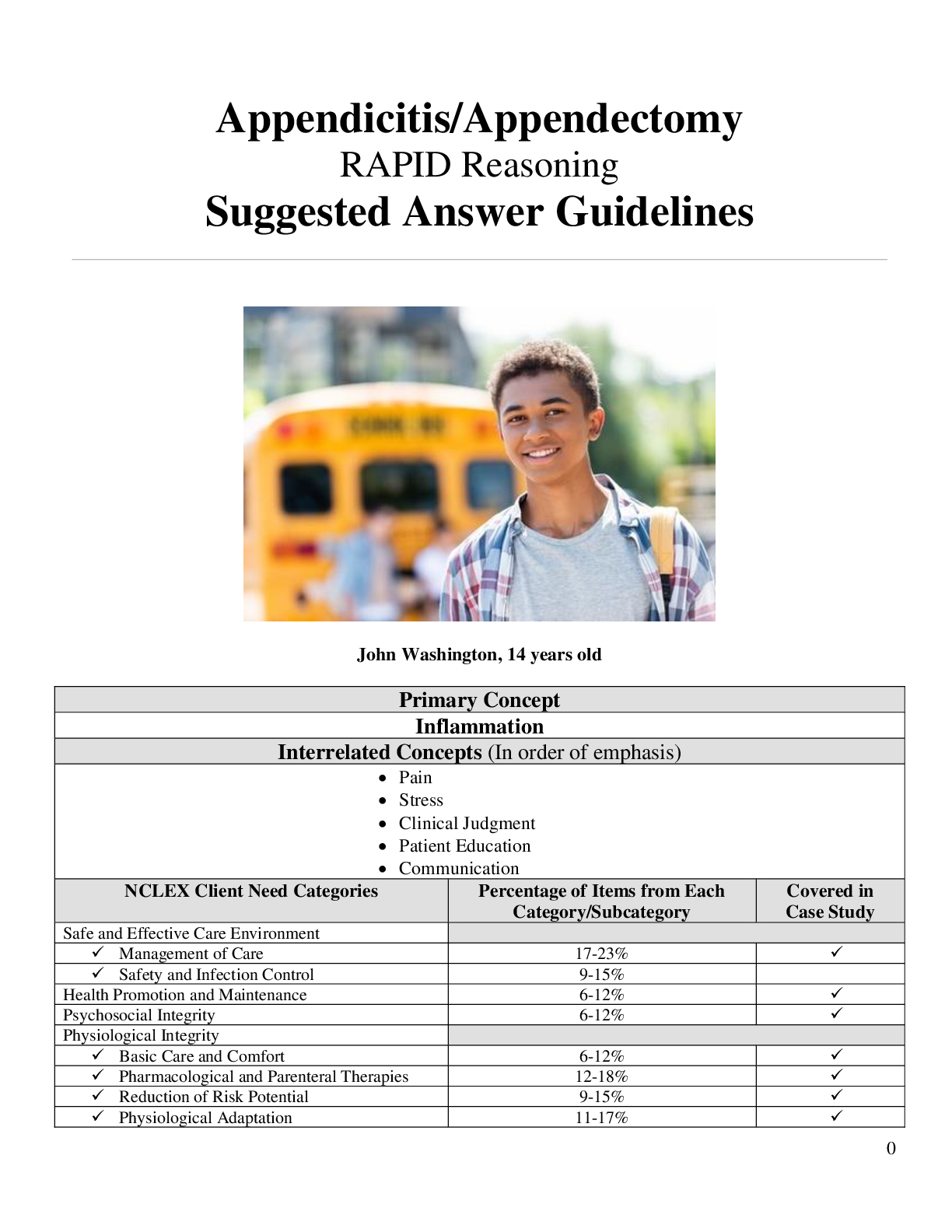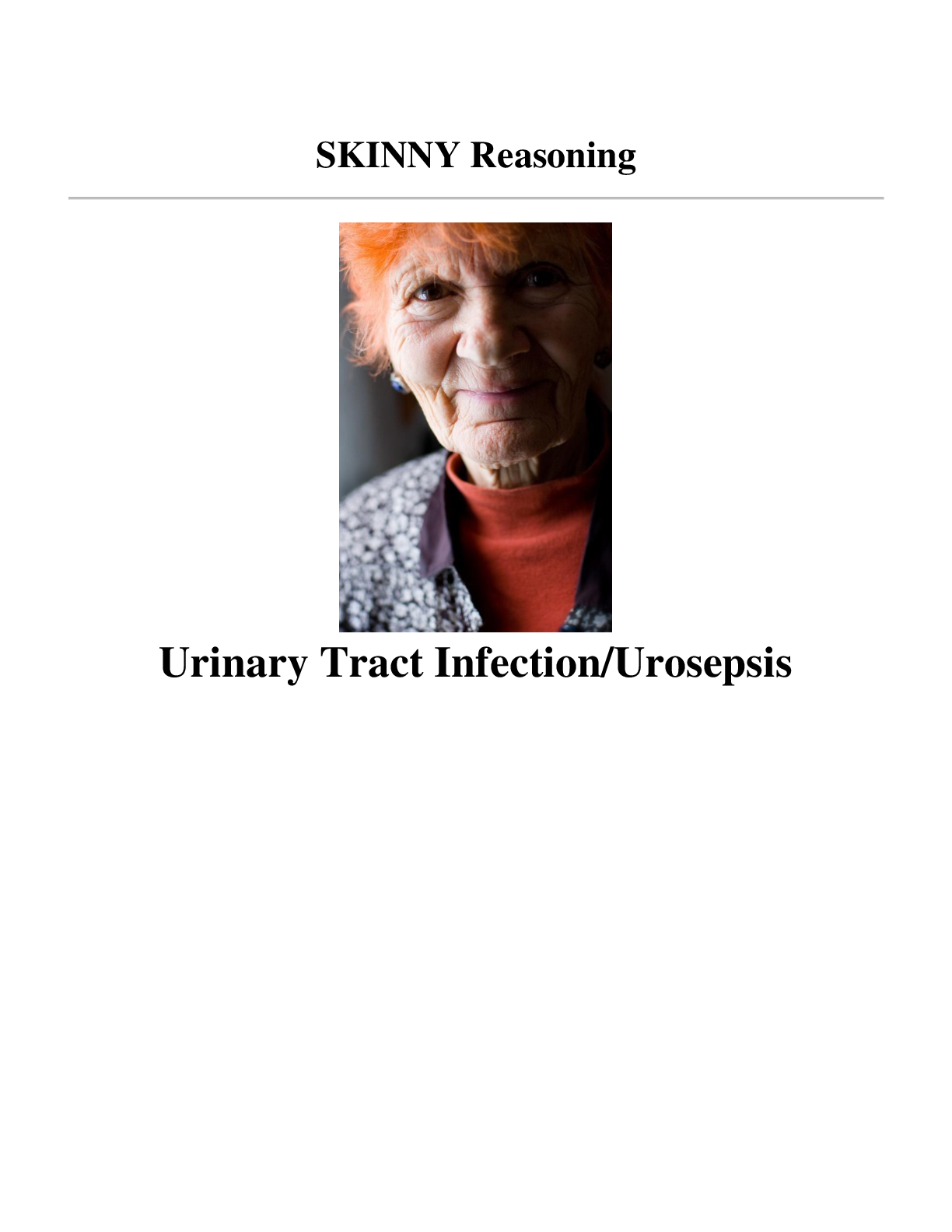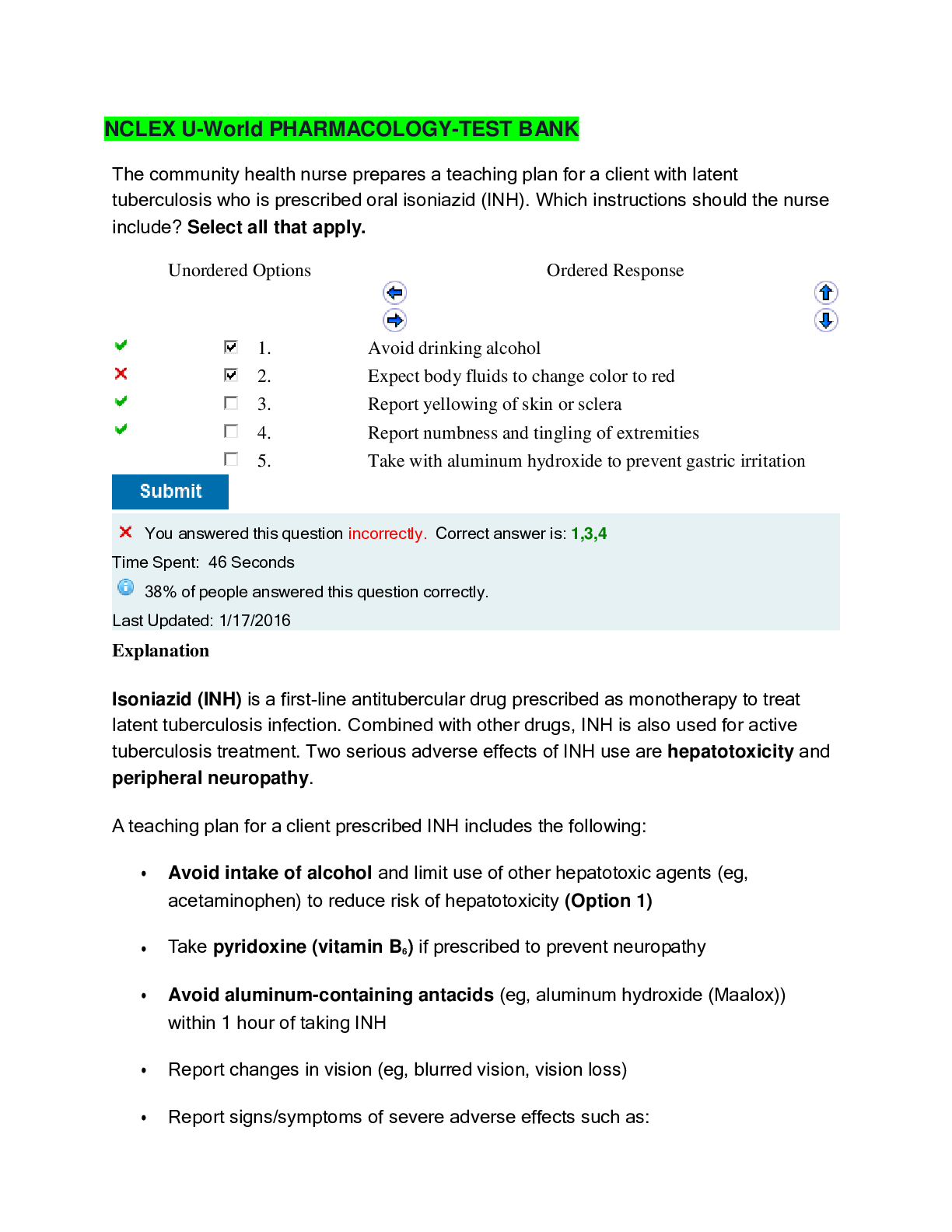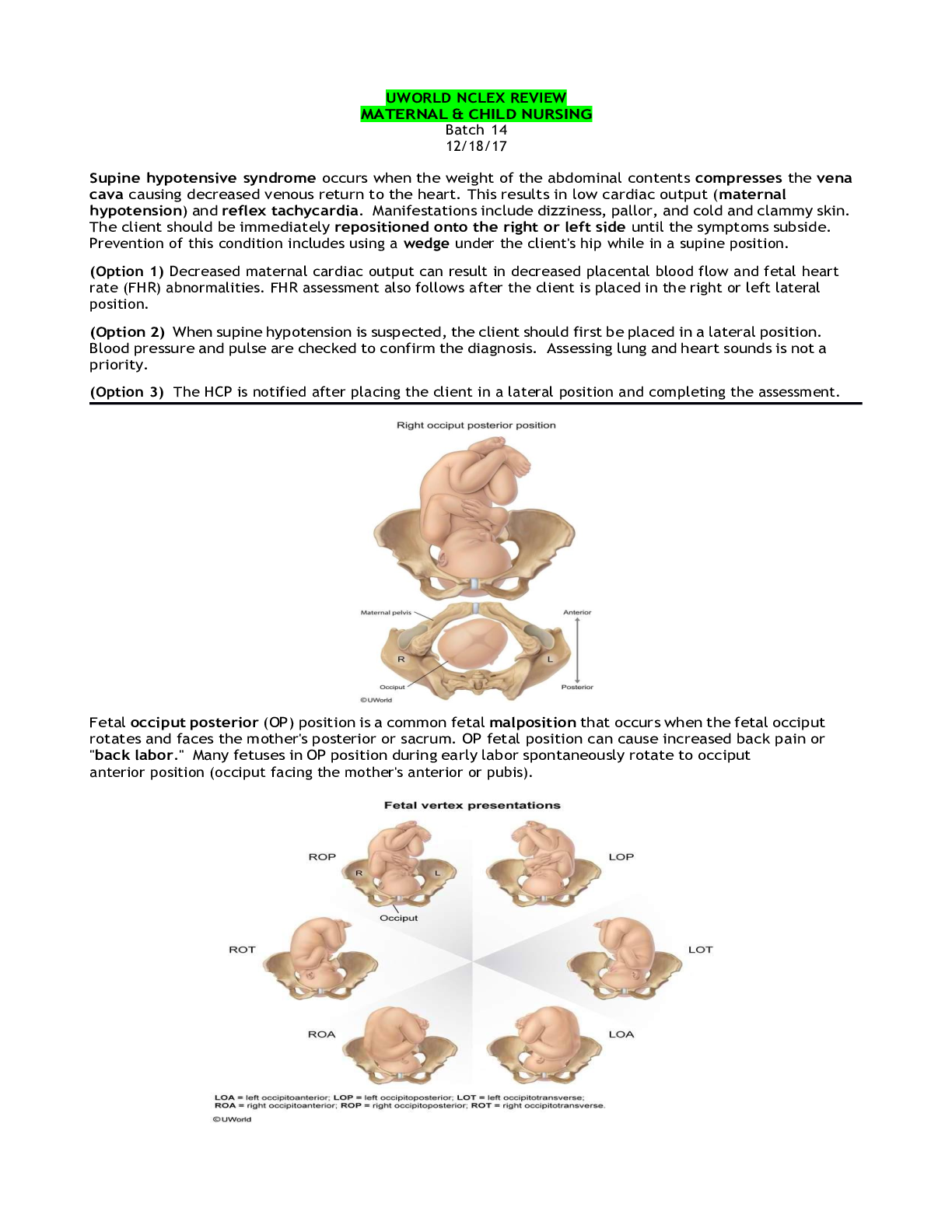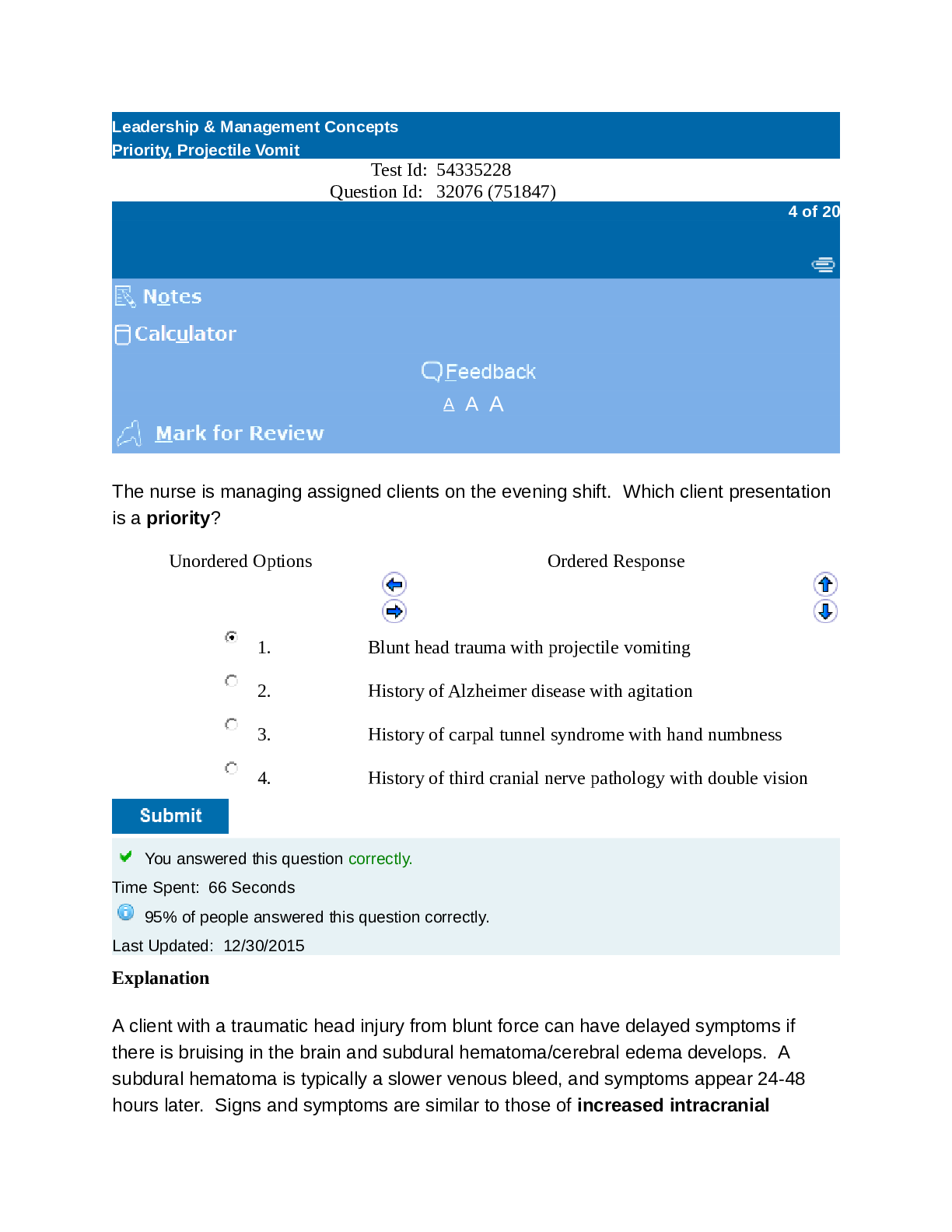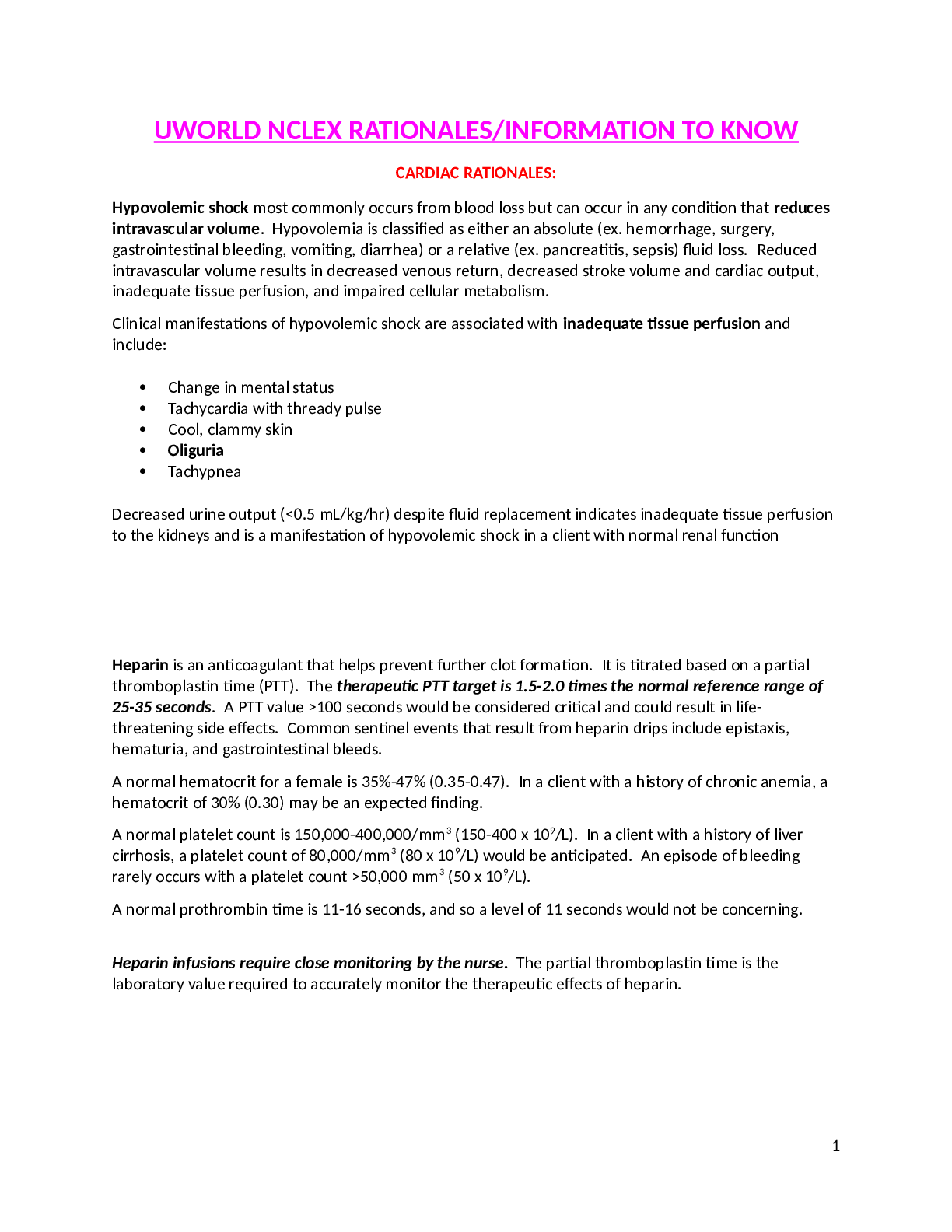*NURSING > UWorld > U World Infectious Disese Integumentary final NCLEX Infection. The information study guide you need (All)
U World Infectious Disese Integumentary final NCLEX Infection. The information study guide you need on U World Infectious Disese Integumentary final NCLEX Infection for last minute reading.
Document Content and Description Below
l U World Infectious Disese Integumentary final NCLEX Infection Macrolide antibiotics (eg, azithromycin, erythromycin, clarithromycin) All can cause a prolonged QT interval, which may lead to sud... den cardiac death due to torsades de pointes. Therefore, an electrocardiogram (ECG) should be monitored. Concurrent use of macrolide antibiotics with other drugs that prolong QT interval (eg, amiodarone, sotalol, haloperidol, ziprasidone, azole antifungals) will further increase this risk. Macrolides can also cause hepatotoxicity when taken in high doses or in combination with other hepatotoxic medications such as acetaminophen, phenothiazines, and sulfonamides. Elevation of aspartate transaminase and alanine transaminase levels (liver enzymes) may indicate that hepatotoxicity is occurring, and the nurse should report these results to the HCP. Tetracyclines (eg, tetracycline, doxycycline, minocycline) The following should be taught 1. Take on an empty stomach – for optimum absorption, tetracyclines should be taken 1 hour before or 2 hours after meals 2. Avoid antacids or dairy products – tetracyclines should not be taken with iron supplements, antacids, or dairy products as they bind with the drug and decrease its absorption 3. Take with a full glass of water – tetracyclines can cause pill-induced esophagitis and gastritis; the risk can be reduced by taking with a full glass of water and remaining upright after pill ingestion 4. Photosensitivity – severe sunburn can occur with tetracycline. The client should use sunblock Medications such as tetracycline and rifampin can decrease the effectiveness of oral contraceptives; additional contraceptive techniques will be needed Bacterial meningitis Burn injuries Rehabilitation phase Nystatin Used to treat oral candidiasis, or thrush, that can be caused by medications such as antibiotics, Skin cancers Sepsis Hypothermia i fluoroquinolones (ciprofloxacin, levofloxacin, moxifloxacin, norfloxacin, ofloxacin) C difficile Red man syndrome (RMS) Isotretinoin (Accutane) Influenza Trichomoniasis Evisceration Ethambutol (Myambutol) Active TB Acid-fast bacilli (AFB) smear and culture Oropharyngeal candidiasis, or thrush (moniliasis) Hepatitis A bismuth subsalicylate (Pepto-Bismol) Amoxicillin/clavulanate Urinary tract infections (UTIs) Cystitis is the most common community-acquired UTI. It is an infection of the lower urinary tract and Herpes zoster, or shingles First-degree (superficial) burns Second-degree (partial-thickness) burns Third-degree (full-thickness) burns Fourth-degree (full-thickness) burns Tinea corporis (ringworm) . West Nile virus Rheumatic fever (RF) Influenza Toxic epidermal necrolysis IV vancomycin, Poison ivy Immediately after exposure, the client should be instructed to thoroughly wash the area to remove the oily resin, which is responsible for causing the rash that follows in 12-48 hours. Applying cool, wet compresses; applying topical cortisone; and discouraging the child from scratching the area are all appropriate after the rash has developed. Washing the area has the highest priority and is most important immediately after exposure. ** Adalimumab (Humira), etanercept (Enbrel), and infliximab (Remicade) are common tumor necrosis factor inhibitor, biologic disease-modifying antirheumatic drugs. Major adverse effects include immunosuppression and infection. ** Clients prescribed sulfa antibiotics (eg, trimethoprim-sulfamethoxazole [Bactrim]) should be assessed for allergies to sulfa drugs and sulfonylurea medications, such as glyburide, due to potential cross- sensitivity reactions. Commonly used diuretics (eg, thiazides, furosemide) are also sulfa derivatives and can cause cross-sensitivity reaction. ** A client with a penicillin allergy may be allergic to cephalosporin antibiotics. Cephalosporins may be safely administered to clients with a history of mild allergic reaction, such as rash, but they are contraindicated in clients with a history of penicillin anaphylaxis. When an abdominal wound evisceration occurs, the nurse should take the following actions: • Remain calm and stay with the client. Have someone notify the HCP immediately [Show More]
Last updated: 1 year ago
Preview 1 out of 16 pages
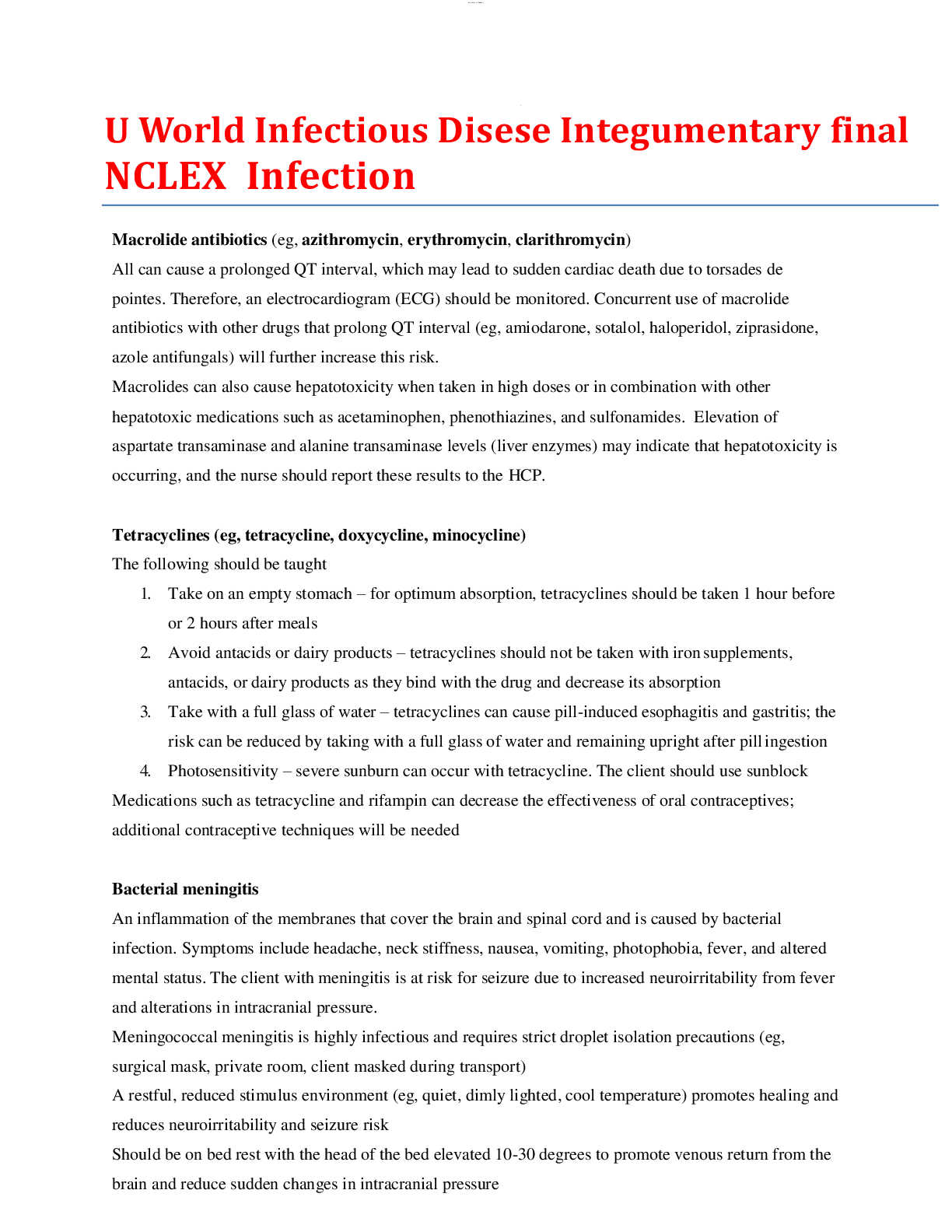
Reviews( 0 )
Document information
Connected school, study & course
About the document
Uploaded On
Sep 02, 2020
Number of pages
16
Written in
Additional information
This document has been written for:
Uploaded
Sep 02, 2020
Downloads
0
Views
146

